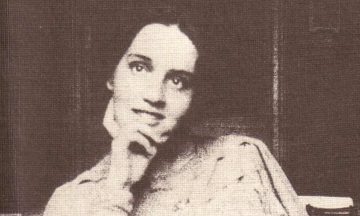John Self in The Guardian:
 In 1906 in England, literature was dominated by the well-behaved worlds of novelists such as Arnold Bennett, EM Forster and John Galsworthy. At the same time in Italy, Marta Felicina Faccio, who later became a leading feminist, published her first book under the pseudonym Sibilla Aleramo. A Woman is a groundbreaking, earthquaking vision, a story and a manifesto, and a literary performance so energetic it almost demands to be read aloud.
In 1906 in England, literature was dominated by the well-behaved worlds of novelists such as Arnold Bennett, EM Forster and John Galsworthy. At the same time in Italy, Marta Felicina Faccio, who later became a leading feminist, published her first book under the pseudonym Sibilla Aleramo. A Woman is a groundbreaking, earthquaking vision, a story and a manifesto, and a literary performance so energetic it almost demands to be read aloud.
As a child, the narrator – who is unnamed, though the novel is essentially a memoir of Aleramo’s early life – worships her father and disregards her mother: which is where the trouble begins. How could it be otherwise? Her father is the source of knowledge, of money, of all that seems valuable; her mother is “readily prone to tears, while my father could not bear the sight of them”. When the family moves from Milan to southern Italy, things get worse. In a shocking, disorienting scene, her mother tries to take her own life and never fully recovers. The girl’s own struggles have barely begun. Helping in her father’s factory at the age of 15, she attracts the attention of a worker, who rapes her. This overturns her thinking to the point that she wonders, “Did I belong to this man now?”, ultimately marries him, and they later have a son together. Yet it is from this experience that she begins to see that the self often works against its own interests; that by favouring her father over her mother “I had never stopped to imagine my future life as a woman”. It leads to a suicide attempt of her own.
More here.
